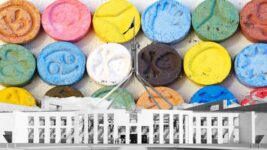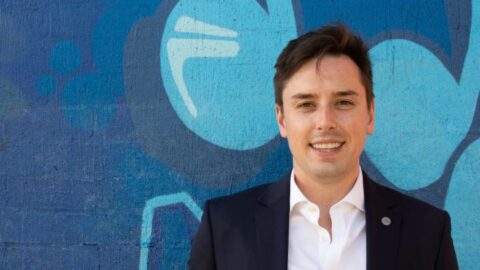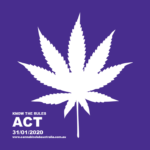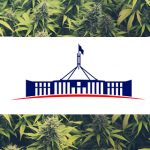The ACT Government Has Greenlighted Drug Decriminalisation

The ACT is about to decriminalise the personal possession and use of illicit substances. So, while drug supply will remain a serious crime, the capital will no longer criminally charge people for using certain drugs, in a move akin to the successful system that’s been operating in Portugal since 2001.
The ACT government last week released its official response to a select committee scrutiny report on the Drugs of Dependence (Personal Use) Amendment Bill 2021, which recommended the ACT Legislative Assembly pass the legislation with minor amendments.
The Personal Use Bill removes the criminal offence related to the use and possession of small amounts of the most commonly used drugs in the capital, so that these actions will soon be dealt with as a civil offence, resulting in a fine or the requirement to attend treatment or support.
ACT MLA Michael Pettersson produced the legislation. The Labor backbencher, who dares to go where most politicians fear to tread, was also behind the system of legalised recreational cannabis use and personal possession that’s been operating in Canberra since 31 January 2020.
And while an anomaly in this country, these harm reduction schemes are in line with a global trend towards treating illicit drug use as a health issue, and not a crime, which recognises that much of the harms associated with the use of illegal psychoactive substances are a result of criminalisation.
“The next sensible step”
“It changes the emphasis from criminal law to that of public health,” Pettersson told Sydney Criminal Lawyers.
“We know that people in our society use drugs,” the Labor MLA continued. “We know that there are many dangers associated with that, and we think our primary responsibility should be in reducing the harm that they experience as a result of that drug use.”
Pettersson outlined that the drug decriminalisation conversation has been going on for a long time in the capital, with the first discussions relating to the private members bill commencing in December 2020.
The Uniting Church Synod of NSW/ACT has been advocating for drug decriminalisation since 2016. This led to the launch of its Fair Treatment campaign in 2018, which has a large number of civil society organisations supporting it, including the NSW Bar Association.
“Decriminalisation doesn’t solve the problem, but it goes a long way to reducing stigma and allowing people to access the help and support that they need when they need it,” Pettersson made clear. “People want to see the ACT take the next sensible step.”
A global shift
When Portugal decriminalised illicit substances at the turn of the century, the nation was going through a drug crisis, with around one percent of the populace heroin dependent. But, these days, the nation has some of the lowest rates of drug-related harms and deaths in Europe.
As Harm Reduction Australia ambassador Dr Alex Wodak has underscored, the success of the Portuguese model was not based solely on its removal of the debilitating criminal offences, but it was also down to accompanying strong investment in drug treatment.
In the US, the nation that led the charge for drug prohibition a century ago, the state of Oregon recently became the nation’s first jurisdiction to decriminalise all illicit substances, with its citation system coming into play in February last year.
Since Oregon made the change, a number of other US states, including Washington, Massachusetts, Vermont, Maine, New York, Rhode Island, Maryland and Kansas, are now considering similar laws to decriminalise personal possession and drug use.
Pettersson’s bill broadens the ACT’s Simple Cannabis Notice Offence scheme, which has seen small amounts of cannabis decriminalised since 1992. The Simple Drug Notice Offence scheme will soon allow other common drugs to be dealt with as a civil offence, with the potential to enter treatment.
“Instead of penalising with a criminal conviction people who use drugs, this bill will allow a simple offence notice to be issued, the substance to be confiscated and the user referred to a medical professional,” the Labor backbencher explained on introducing his bill in February last year.
A capital idea
“A Your Say Survey conducted in 2021 indicates that Canberrans overwhelmingly support drug decriminalisation and only one in ten people supports imprisonment for drug possession offences,” said ACT health minister Rachel Stephen-Smith on announcing her government’s support for the bill.
The minister further announced on 9 June that her government is rolling out a six month trial of a fixed pill testing site in nation’s capital, which the territory government committed funding towards as part of its 2021-22 budget.
In line with harm reduction interventions in a number of European nations, and following two successful pill testing trials at ACT music festivals, people in the capital will be able to attend the site to have their drugs tested for toxicity and harmful levels by medical professionals prior to any use.
“Once you accept and understand the premise that drug use is first and foremost a public health issue, the entire response of government shifts,” said Pettersson in regard to the fixed site trial and its rollout coming in tandem with the move towards drug decriminalisation.
“You no longer see prohibition as the only solution,” he clarified. “Once you accept that the role of government is to help, then you can go about implementing drug harm reduction measures. You see that with pill testing, as well as the government’s consideration of drug consumption rooms.”
Ahead of the rest
Australian parliaments are notorious for being resistant to progressive change on social issues, especially when it comes to illicit drugs.
Currently, the NSW Coalition government is grappling with how it should look to be responding to the recommendations of its own Special Commission of Inquiry Into the Drug Ice, whilst digging in its heels on its antiquated law enforcement response.
However, ACT parliament has long been the exception to the rule.
On why Canberra is so progressive, Pettersson explained that the constituency doesn’t seem to be receptive to scare campaigns and since his bill has been on the table no one has attempted any such coordinated effort against it.
The Labor backbencher considers that the majority of Canberrans understand that drug decriminalisation is to the benefit of public health, and he added that it’s likely the reform will be rolled out some time next year.
“The government response enables me to bring my bill on for debate. I expect that to happen in the next couple of months,” Pettersson concluded. “It will be debated and voted on. And I expect the bill to come into effect most likely in a year after that.”








